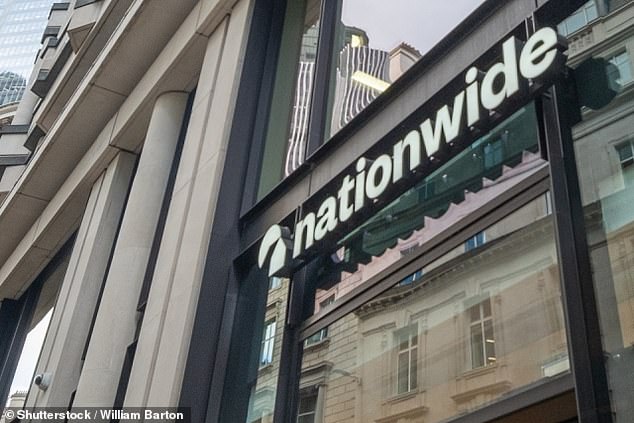Maybe it’s time for Debbie Crosbie, the chief executive of Nationwide, to be parachuted into one of the London-listed high street banks.
The Nationwide-Virgin Money boss is swimming against the tide in Britain with her commitment, as reported by the Mail, to extend its moratorium on closing branches from 2028 to 2030.
The Big Four banks frequently claim that branches are for the fairies and customers prefer online banking. Some 6,731 branches will have been closed by the end of next year, according to Which? data.
On my own high street, the Barclays branch is a Gail’s bakery, the NatWest a pilates studio, and the HSBC – yes, you guessed – is another fancy coffee shop.
Are the UK banks missing a trick? In Washington DC last month I couldn’t but help notice that branch banking is alive and well despite the fact the financial crisis wiped out local lender Riggs.
This is no accident, it is part of a trend. JP Morgan (which is making a play for UK customers through the Chase brand) has opened 1,000 new branches in the US over the last seven years and increased its retail network to 5,000. It is not alone. Bank of America and Wells Fargo are slowing or halting closures.

Closures: It is estimated that another 6,731 branches will close by the end of next year – but Nationwide is bucking the trend
Wells Fargo, with 4,135 branches, has opened in Washington and is targeting New York City, Nashville and fast-growing Texas, beloved of the tech bros including resident Elon Musk, for rapid expansion.
Bank of America has 150 new outlets in its sights. Pittsburgh’s PNC Financial Services, with a $600billion (£457billion) balance sheet, plans to spend $2billion on 300 new branches and is refurbishing its estate.
Admittedly, banking in America is structurally very different to the UK. The bigger money centre banks are challenging local and more regional rivals for custom.
In America branch banking offers a point of difference from upstart financial technology. It is seen as particularly valuable in harvesting consumer deposits.
JP Morgan recently reported that ‘consumer and community’ delivered a return of 35 per cent on equity in the last month.
Making branches pay means offering competitive returns on savings and better consumer service.
Not strengths for British banks. American branches also provide wealth management advice and execution.
British banking ceded this space, partly due to onerous regulation, to financial advisers and platforms such as Hargreaves Lansdown and AJ Bell.
Santander is showing initiative and has repurposed part of its branch in Kensington as a workspace for PC users, replete with a coffee shop.
The UK fashion for branch closures and cutting costs demonstrates how remote, complacent and out of touch with consumers and smaller businesses UK bank bosses are becoming. Stupid!
Call to arms
Rachel Reeves may talk ‘securonomics’ but it is the Germans and Americans who are driving growth at BAE.
Arguably, Berlin is at a standing start and genuinely has the budget headroom to hit Nato targets for defence spending. Despite Britain’s expertise – it is helping Belgium monitor drone activity – the budgetary cupboard is bare.
There is not much in the overseas aid budget to raid.
BAE Systems is prospering in the post-Ukraine world, supplying Typhoons to Turkey, anti-drone missile defences to the Pentagon and is a big player in creating Donald Trump’s ‘Golden Dome’ defences.
The shares are up 56pc this year. This is not yet a Rolls-Royce scale turnaround but, barring mishaps, geopolitics and BAE’s special status at the Pentagon point to lively prospects.
Credit-worthy
When Great Universal Stores did the splits almost 20 years ago it created three independent quoted companies, including Burberry and Argos, now part of Sainsbury’s. The least understood enterprise was credit checking group Experian.
Latest results show 9 per cent growth in providing services to consumers and buoyancy in the provision of data and analytics on mortgages to business.
Despite a market value of £31billion and first-half profits of £744million, it has not shared in the recent FTSE 100 surge.
Maybe better and deeper adoption of AI will change that.
DIY INVESTING PLATFORMS

AJ Bell

AJ Bell
Easy investing and ready-made portfolios

Hargreaves Lansdown

Hargreaves Lansdown
Free fund dealing and investment ideas

interactive investor

interactive investor
Flat-fee investing from £4.99 per month

Freetrade

Freetrade
Investing Isa now free on basic plan

Trading 212

Trading 212
Free share dealing and no account fee
Affiliate links: If you take out a product This is Money may earn a commission. These deals are chosen by our editorial team, as we think they are worth highlighting. This does not affect our editorial independence.
